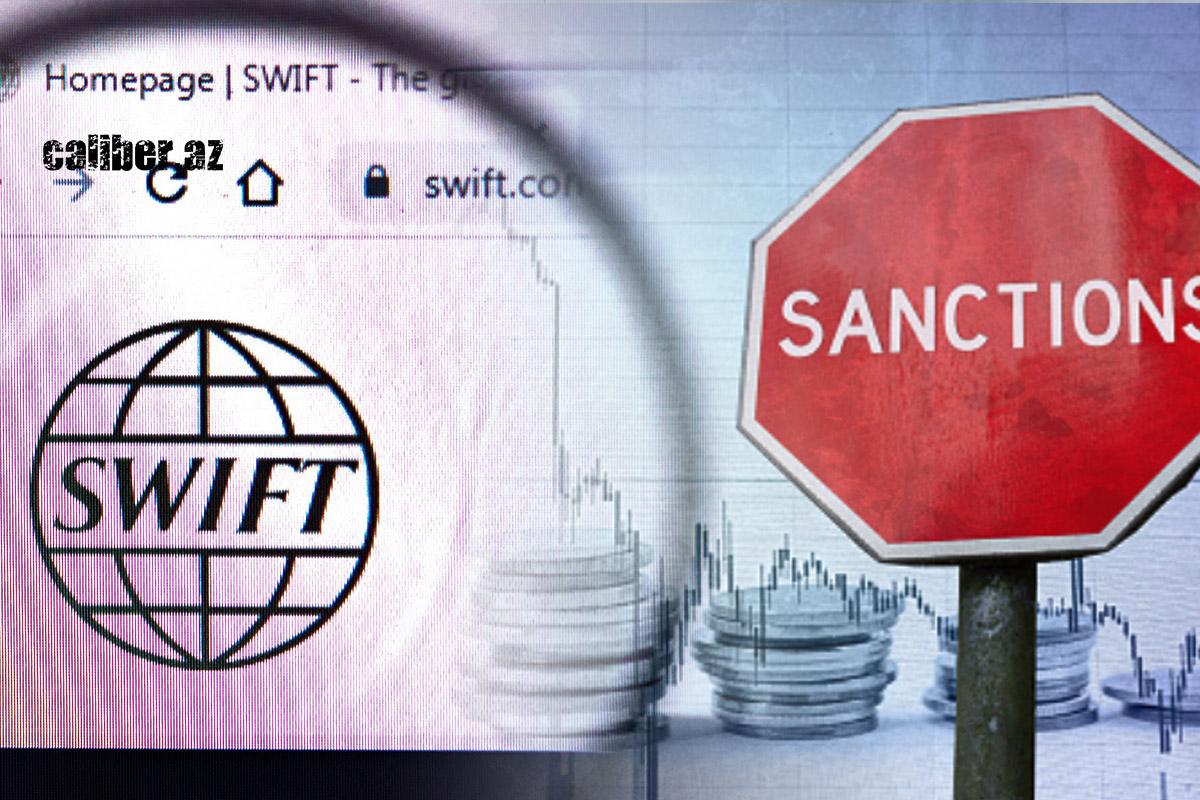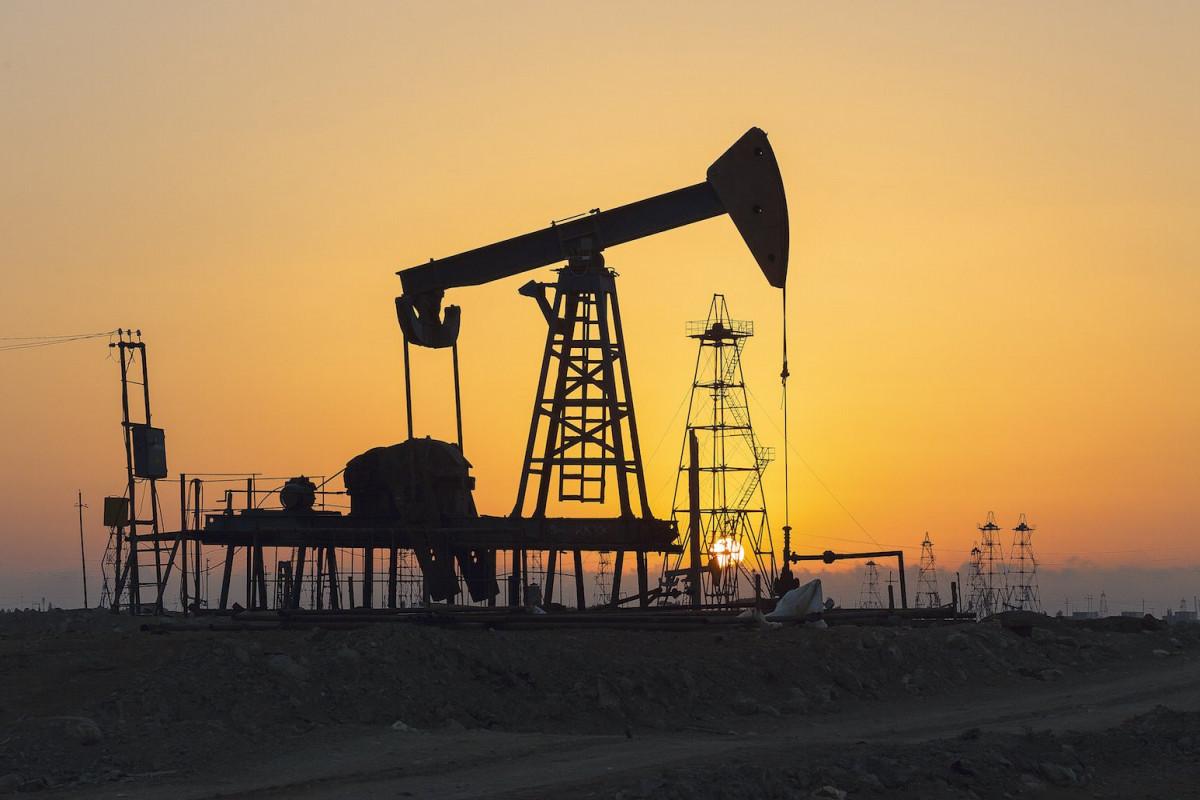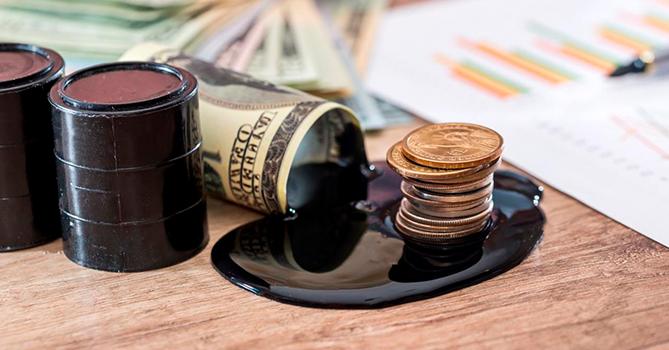Global redistribution of resources and its possible impact on oil-producing countries
Analyst Mishchenko hosted by Caliber.Az
INTERVIEWS 14 April 2022 - 16:46
| Huseyn Safarov Caliber.Az |
The confrontation for redistribution of resources and influence in the world is speeding up before our eyes, Vyacheslav Mishchenko, head of the Center for Analysis of Strategy and Technology of Development of the Fuel and Energy Complex of the Gubkin Russian State University of Oil and Gas told Caliber.Az.
He was commenting on the prospects of the Russian energy market under sanction pressure from the West.
Mishchenko believes that the current geopolitical situation has revealed the topic of energy resources in a complete way.
"It happened due to the fact that the green climate agenda very much downplayed the role of classic hydrocarbon energy resources. Everywhere at the doctrinal level, there were provisions that we must get rid of oil, gas and minerals, which are extracted in Russia and Azerbaijan, among others. However, the current situation has promoted this agenda. Climate and environmental issues certainly remain important, but they by no means replace the extraction, processing, and use of hydrocarbons. Oil and gas are becoming increasingly significant in the stable and secure development of the world's economies, and this is the most important thing we need to talk about. We are now living in the context of the commodity supercycle, when the demand for resources is only increasing, despite all the restrictions. The world is changing, the global population is growing, and it is growing thanks to the regions that are already experiencing huge population growth. This is Southeast Asia, led by China and India. In these countries, in addition to population growth, a fairly large middle class is forming. The standard of living there is gradually improving and consequently, resource consumption is only increasing.
This new middle class, which is forming in China and other Asia-Pacific countries, will require more and more high-quality infrastructure, new communications, improvement of living conditions in the cities, etc. The population of the Earth is growing and, accordingly, people will have to continue to use the available benefits of civilization and energy is the basis of life on our planet. Therefore, the role of energy resources is now increasing and all attempts to portray the traditional oil and gas industry as backward from progress, outgoing, do not correspond to its role in real life," the analyst said.

Speaking about the anti-Russian sanctions that are currently being adopted by the Western community, Mishchenko noted that there is currently another round of confrontation for the redistribution of resources, for the repartition of influence in the world.
"The unipolar world is not a trite phrase, it exists. The unipolar world, in fact, is now going away. That concept, or rather some semblance of globalization of economy, world politics, etc., which existed during and after the collapse of the Soviet Union, the socialist camp, is also going away, because there are other centers of power, which are able and willing to live independently, to determine their economic, social and political development parameters, etc. Therefore, it is necessary to see and understand the whole complex of events and the cause-and-effect relation. What is happening today has certain prehistory. Russia and the EU are currently in a state of economic conflict, and it is good that the conflict is only economic. Western bloc countries are taking steps to limit the opportunities for Russia, Russian economic entities, and companies to interact with certain export commodity markets, financial instruments, payments, and logistics. To date, five packages of EU sanctions have already been adopted. The 5th package was adopted just a few days ago. It includes various parameters, technology, and finance. Regarding energy, it includes a ban on the purchase of Russian coal, which again, was delayed in time. If I'm not mistaken, the European countries' refusal to buy Russian coal will not start until August. The next, the 6th package, is also on its way and is being actively discussed. There is a provision on refusing or imposing an embargo on Russian oil supplies to Europe. This provision is the most complicated and controversial. The refusal even of Russian gas is discussed within the framework of the 6th package. This decision raises many questions because the dependence of many European countries, first of all on Russian gas and secondly on oil, is critical. It will not be possible to simply replace these volumes, especially in a short period of time. Therefore, we are now mainly talking about reformatting of energy and economic flows.
Meanwhile, if we look at the situation from a different perspective, in fact, under the conditions of the global commodity supercycle, the countries that possess resources, extract them and supply them to the world market have the advantage. Those countries or regions that do not have their own raw materials are now in a weaker, more dependent position. Talks that it is possible to quietly and very quickly replace the existing volumes, supply routes and solve infrastructure issues are absolutely politicized. Such statements are made by politicians at various levels, first and foremost by European politicians, to please some political environment. I call it political manoeuvres. At the same time, we deal with a quite well-organized, disciplined, and massive media policy which leaves no chance to talk seriously about an alternative or a different view. For example, Hungary, which has stated that its dependence on Russian energy resources is critical and that the country is not going to give up on Russian oil and gas, has been severely criticized by its EU colleagues. Poland and Germany even suggested imposing sanctions against it. In other words, we see sanctions already inside the EU itself against one of its members. Therefore, it is important here to what extent this discipline and the political wave will consolidate the refusal to use and primarily to purchase of Russian energy resources at some kind of sanctions, legislative level.
Again, this will all be done on paper, at the political level. We know that the market itself is more flexible, and in any case, these resources, oil and petroleum products produced in Russia, will somehow make their way onto the world market.

If this is the European direction, I think that the role of international traders will increase. These are companies that can somehow buy oil in Russia or take it from some other intermediaries. There are already such examples. "Shell" has recently announced that it will work with a new oil grade, the Latvian grade. At its terminals in Latvia, the company will mix Russian oil with other grades of oil, the result will be a certain mixture that will contain 49.9% of Russian oil, but the output will no longer be considered Russian. This is such a technical, legal move, which also takes place. Other traders will be working in the risk zone and may fall under sanctions, but they will be actively earning.
As we can see, the discount on the Russian export grade of Urals oil increases in relation to the marker grade, let's say, the North Sea grade of Brent. In any case, the European direction will remain, but it will be legally, technically, or logistically repacked. The relations will be reformatted. Companies, traditional buyers of Russian oil - refineries, large national companies, will refuse from direct contracts, and freeze them for a while, but these volumes will be sold to them by international traders under new schemes. Time will show how this will happen, for how long, what volumes and at what price. It's very difficult to see any exact scenarios right now. In addition, everything will depend on many non-commercial and non-economic factors. In general, as for redirecting the volume, I think that Russian oil will look for new markets, new buyers," says our guest.
Mishchenko also noted that last month India proved to be an active buyer of Russian oil.
"Indian traders and refiners started to actively purchase Russian oil. The volume of Russian oil supplies to the Indian market actually quadrupled in March. Mostly this oil goes through the southern ports, through Novorossiysk, and batches are formed there. Again, a high level of discount helps, thanks to which Indian traders and buyers can financially afford to bring this oil to refineries in India and, consequently, increase the volume. Right now it is profitable for them.
Cooperation in the eastern direction will certainly expand in the future. Russia has a large oil pipeline from Eastern Siberia to the Pacific Ocean. It goes to the eastern port of Kozmino near Vladivostok. Correspondingly, there is a branch, a pipeline from Russia to China along the Skovorodino-Mohe line. This branch line sends 30 million tons of oil directly to Chinese refineries and 50 million tons to the Kozmino port, from where it is loaded into tankers and shipped to the US market as well. To be precise, it was shipped until recently, when the embargo was introduced.
There is also such a direction as North-South. This is resumption of work via the northern Caspian Sea, where Russia and Kazakhstan participate in mining projects. This direction could work under a substitution scheme. Russia and Kazakhstan participated in supplying to the north of Iran at the port of Neka, then Iran would deliver Russian and Kazakh oil in the Persian Gulf. If necessary, this volume was supplied to the Southeast Asia, etc. Now, this scheme has been recalled. In my opinion, this scheme could work. Through Iran, you can get into some additional markets. There are Pakistan, India, and other major countries that have ports to receive oil in the Persian Gulf. I think we could look at the level of refining and average distillate production in Russia. I know that the European market is in short supply of diesel fuel, Russia is the largest producer of diesel fuel in that territory and it is of good quality (Euro-5). Therefore, this diesel fuel, not oil, could somehow find its way to the European market through intermediaries. In other words, it is a question of entering another market of oil refining, which gives higher added value. Perhaps the volumes will be lower, but oil companies will earn as much or even more when exporting. Again we see the economic effect: despite the attempts to reduce the volume of Russian oil, gas and petroleum products in the same European direction, the earnings of oil and gas suppliers only grow. Shortages, deficits, and estimated shortfalls are pushing the futures market up. When everyone expects the price to rise, respectively, here they earn not on the volume, but on the price, on the margin," the expert said.

According to Mishchenko, the sad thing about this whole story is that we have to abandon infrastructure that has been built for decades and has justified itself.
"In essence, this is the destruction of the basis for stable, progressive socio-economic development. When you give up regular, accessible, predictable and stable supplies of energy resources that you have had for decades and you sacrifice that for the sake of political environment, you plunge your economy and your society into certain turbulence that you do not know how it will end. Since refusal to use Russian oil will lead to the shutdown of most refineries in Europe and will lead instantly to a deficit, a spike in motor fuel prices, and so on up the chain. Refusal to use Russian gas will lead to a catastrophe in energy and agriculture because fertilizers will also increase in price or simply will not exist. This political, socio-economic turbulence, in which consumer countries, even the most stable ones like Germany, may find themselves, is certainly surprising. The lack of a wise, balanced view of events is striking. There is an acute phase in relations, but nevertheless, politicians and leaders of Western countries are obliged to forecast the economic development of their country for decades to come. The political maneuver, I mean sanctions, will plunge first of all EU in such a zone of turbulence, from which it is unknown how it will come out and what will be the consequences of it," V. Mishchenko said.
In conclusion, the expert noted that Azerbaijan, Russia, and Kazakhstan, as countries with resources, will be able to support themselves.
"No matter how conditions change, our countries have resources. We have our resources, we can support ourselves and provide our citizens with heating at any price and with any income. Those countries that impose sanctions get themselves into such turbulence and unpredictability of socio-economic development that no one knows how they will get out of this situation," he concluded.
Caliber.Az
|
1
|
Critical F-35 upgrade deferred, 2024 production slashed by 27-50%
01 May 2024 - 09:05
|
|
2
|
Armenian Church sparks controversy amid handover of villages to Azerbaijan Unrest & dissent in Armenia
30 April 2024 - 18:02
|
|
3
|
“Russian fertiliser is the new gas” for Europe, top producer warns
30 April 2024 - 16:46
|
|
4
|
BRICS de-dollarization threatens US economy, JP Morgan CEO predicts
01 May 2024 - 20:49
|
|
5
|
EU aid to Armenia stalled as Hungary pushes for Azerbaijan's inclusion Geopolitical tensions revealed
02 May 2024 - 17:41
|
“East Asian NATO” forming
03 May 2024 - 03:05
Good, bad and ugly in India's economy
03 May 2024 - 01:03
Carbon-negative cement can be made with mineral that helps catch CO2
02 May 2024 - 23:01
Russia says it sees no point in Ukraine peace talks in Switzerland
02 May 2024 - 21:10
Azerbaijan, Türkiye strengthen cooperation in human rights field
02 May 2024 - 21:03
Pakistan Air Force eyes to buy Chinese long-range drones
PHOTO02 May 2024 - 20:54
Low-coster FlyArystan launches direct flights from Aktau to Baku
02 May 2024 - 20:38
Britain could soon lose control of its defence industry
Expert Q&A02 May 2024 - 20:20
Azerbaijan, Türkiye discuss prospects of co-op on legal assessment of mine threat
PHOTO02 May 2024 - 20:15
Israeli Air Force attacks Hezbollah targets in Lebanon
VIDEO02 May 2024 - 20:03
US urges Georgia to reaffirm EU, NATO aspirations
02 May 2024 - 19:55
Official: Italy renders assistance to protect infrastructure in Caspian Sea
02 May 2024 - 19:46
OPEC+ could extend oil cuts, formal talks yet to start
02 May 2024 - 19:29
Armenia, Ukraine discuss situation in South Caucasus
02 May 2024 - 19:20
ADB rep: COP29 to help advance Central Asia's climate change action
02 May 2024 - 19:12
Yerevan, Washington discuss military cooperation
02 May 2024 - 18:55
Iran announces sanctions on several figures, entities in US, UK
02 May 2024 - 18:39
Azerbaijani top diplomat, Russian presidential special rep mull cooperation, regional developments
02 May 2024 - 18:29
Chairman: Azerbaijan pays great attention to tourism sector development
02 May 2024 - 18:21
ICESCO chief hails Azerbaijan's leadership in promoting intercultural dialogue, peace
02 May 2024 - 18:15
Armenian PM: Police must be entitled to use force
02 May 2024 - 18:03
Media: RKK/YPG terrorists forcibly recruit children
02 May 2024 - 17:48
EU aid to Armenia stalled as Hungary pushes for Azerbaijan's inclusion
Geopolitical tensions revealed02 May 2024 - 17:41
Vardanyan's nomination and devaluation of Nobel Peace Prize
Martin Sherman's article02 May 2024 - 17:30
Turkish authorities take down organized crime syndicate in Operation Mahzen-36
VIDEO02 May 2024 - 17:14
Azerbaijan, Uzbekistan discuss new format of business ties
02 May 2024 - 17:00
Israel's showdown in Rafah: Defying pressure, determined to dismantle Hamas
Caliber.Az on YouTube02 May 2024 - 16:50
Envoy: EU pleased to see progress in Azerbaijan-Armenia border delimitation
02 May 2024 - 16:44
CEC chairman: Azerbaijan considers postponing parliamentary elections due to COP29
02 May 2024 - 16:38
Türkiye destroys over 800 terrorists in 2024
VIDEO02 May 2024 - 16:28
World religious leaders adopt Shusha Declaration
02 May 2024 - 16:15
Azerbaijan reduces discount rate amid downtrend in global economy
Central Bank takes action02 May 2024 - 16:13
Azerbaijan contributes to climate change action, President Aliyev says
A meeting with UN official Charles Hart02 May 2024 - 15:57
Turkic peoples' crucial role in bridging East-West spotlighted at forum
02 May 2024 - 15:39
EU ready to collaborate with Azerbaijan on climate initiatives for COP29 chairmanship
02 May 2024 - 15:22
Armenian government closes national center for innovation and entrepreneurship due to funding shortfall
02 May 2024 - 15:04
Western Azerbaijan Community denounces biased US report
Urges Congress to abandon pressure on Azerbaijan02 May 2024 - 14:49
France losing its credibility
Article by The Guardian02 May 2024 - 14:32
US warns Georgia about undermining bilateral relations
02 May 2024 - 14:23
Armenian protest movement picketing government, calls for halt to border delimitation
02 May 2024 - 14:17
